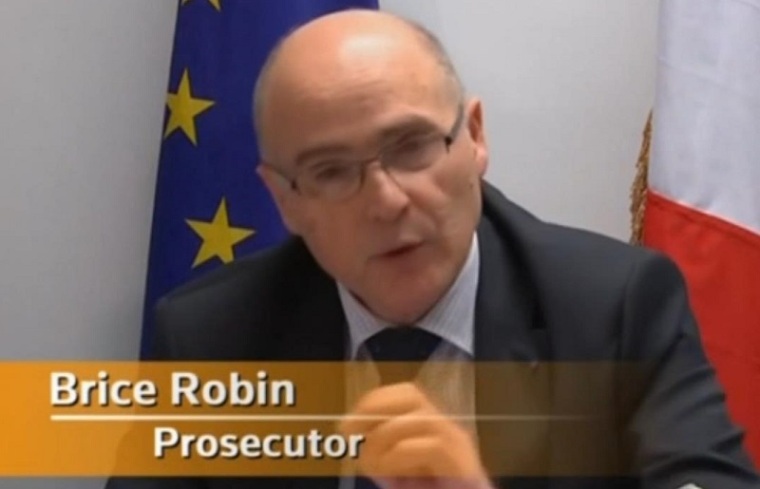Transcript reveals strange mood in Germanwings cockpit

MARSEILLE, France (Christian Examijner) -- The chief prosecutor in Marseille, France, who is directing the investigation into the crash of Germanwings Flight 9525, gave a haunting description from a transcript of the cockpit recording about the last 30 minutes of the fatal flight.
Brice Robin said authorities had a full transcript and he shared selected points about the interaction between pilot Patrick Sondenheimer and co-pilot Andreas Lubitz that builds in horrifying detail.
"During the first 20 minutes, the pilots talk normally," he said
They spoke in a "cheerful" and "courteous" way, he said, adding that "nothing abnormal" was happening.
That is until the pilot began briefing his co-pilot for landing in Düsseldorf, when Lubitz became "laconic" or curt, according to Robin. Still, the captain apparently felt confidence enough in his first pilot to allow him to take over about half an hour into the flight. Background noises confirm Sondenheimer moved his seat back and closed the cockpit door upon exiting.
Robin said that at that point Lubitz was in total control.
"It is when he is alone that the co-pilot manipulates the flight monitoring system to activate the descent of the plane."
Lubitz set autopilot controls to descend from 38,000 feet to 100 feet in altitude, resulting in a rapid but controlled descent of 3,500 feet per minute—which would feel like an approach profile, even if steeper than normal, Robin said.
Minutes later the pilot returned, according to the prosecutor. "He identifies himself, but the co-pilot does not provide any answer."
At this point Robin drew a sharp contrast between the eerie calmness of the co-pilot in the cockpit compared to the apparent frantic efforts of the pilot outside who was trying desperately to break in. He said Lubitz's breathing remained steady even as Sonderheimer began pounding on the door and smashing into it to break into the flight deck.
Despite the drama, the prosecutor said, Lubitz did not respond—"not one word."
Lubitz also did not reply to air traffic controllers who attempted to reach the plane at least three times during the descent.
Robin dismissed the possibility that Lubitz had suffered a medical emergency or other in-flight distress, and said the crash was the result of a deliberate act.
"It was not the breathing of someone having a stroke or a heart attack," Robin said.
The only conclusion to draw, according to the lead investigator, is that Lubitz's actions were voluntary given that he refused reentry to the pilot and had to intentionally manipulate the autopilot controls to set the flight profile that resulted in the crash.
The cockpit voice recorder picked up screams of passengers only in the last minute before the aircraft hit a mountain, skipped, and ripped apart in the Alps near Digne, France. Death was instantaneous, Robin said, given the speed and rate of descent at which the aircraft crashed.
RELATED STORIES:
Germanwings co-pilot Andrea Lubitz a German citizen, religion unknown, no known terrorist ties
BREAKING: Germanwings co-pilot deliberately destroyed aircraft